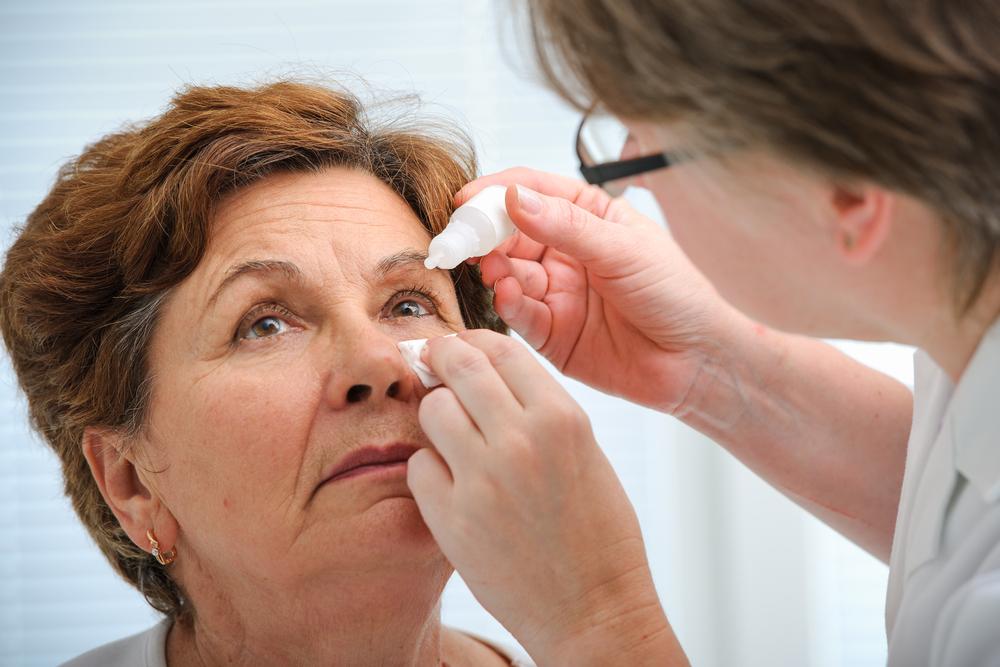Here’s All You Should Know about Dry Eyes
Dry eyes syndrome is one of the most common eye problems that eye care specialists have to treat. It occurs when oil, water, antibodies and mucus in tears are not in a proper amount to run the tear system properly. Dry eyes are often called with different medical terms, each standing for different conditions such as inflammation and dryness in the cornea is called Keratitis Sicca, dryness in cornea and conjunctiva is called Keratoconjunctivitis Sicca and inadequate formation of tears lead to dysfunctional tear syndrome.

There are certain risk factors behind dry eyes such as aging, hormonal changes in women during menopause or pregnancy or for using contraceptive pills. Proper treatment is necessary during the initial stages to avoid complications like an eye infection, vision problems, corneal abrasion, and eye inflammation. It can also lead to a deterioration of social or personal lifestyle like difficulty in watching tv or computer, difficulty in driving or reading etc.
Causes of dry eyes
Those who are addicted to mobiles or spend significant time sitting in front of the computer are prone to having dry eyes as while looking at the digital screen, eyes tend to flutter less frequently, thereby tears get evaporated quickly. Some of the most common causes are reading or driving for a long time without blinking much, flying in low-humid air-conditioned state or using contact lenses for long.
The climatic causes include – low humid high altitudes, arid climate, windy weather, scorching sun and blowing of hot and dry air. Smoking can also cause dry eyes, so does the intake of certain medications like the following.
- Contraceptive pills
- Sleeping pills
- Antidepressants
- Antihistamines
- Ace Inhibitors
- Diuretics
- Morpheme or opium-based painkiller
- Acne-reducing or skin-care medicines
- Decongestants
Besides, aging, menopause and certain diseases like collagen vascular disease, rheumatoid arthritis, sjogren’s syndrome, shingles, HIV, bell’s palsy can lead to dry eyes. Reduced tear production is often caused by medical conditions like deficiency of vitamin a, lupus, diabetes, and scleroderma, etc. And from the damage of tear gland, lasik surgery. On the other hand, tear evaporation is increased by problems in eyelids like ectropion and entropion, less blinking and exposure to dry air, smoke, and wind.
Symptoms of dry eyes
Some of the commonest symptoms of dry eye include itchiness, aching, soreness, inflammation and burning sensation in eyes along with redness, blurred vision or photophobia, fatigued eyes, a heaviness of eyelids, dryness etc. If not treated properly, these symptoms can result in permanent damage. Grittiness in eyes and sometimes even over watery eyes are seen as symptoms of dry eyes. Over-stimulation of tears or reflex tearing as a protective mechanism is not permanent and evaporates more rapidly.
Treatments for dry eyes
Over-the-counter lubricators or eye drops along with prescription medicines (oral and eye-drops) are the most effective remedies to treat dry eyes by balancing the moisture. One can get a warm compression or eyelid massage to ease up meibomian gland. To avoid dryness, it is better to wear proper sunglasses in arid and dry weather and keep a distance from the air conditioner and furnaces.
One can also use air-humidifier or spray water on curtains to keep the humidity level normal. Blinking properly and closing eyelids after every 5-10 seconds will help in restoring the tear balance. As for food supplements, having omega-3 fatty acid and vitamin A-rich food will help. Finally, if all these go in vain, there is always the option for surgery.















